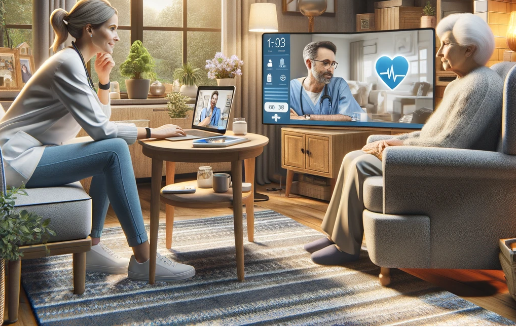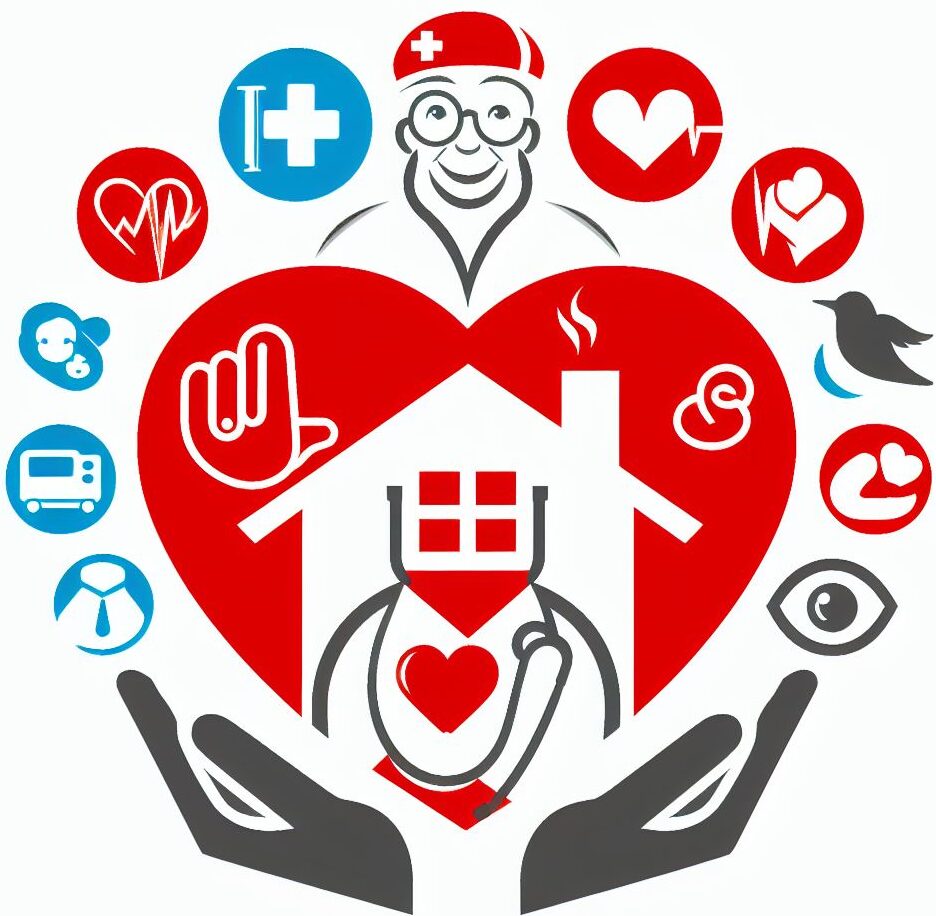The term “integrated health care” is a pioneering approach that is fundamentally altering the delivery of medical services.

This article explains the essence of integrated health care models, highlighting their significance and the profound impact they have on patient care.
By transcending traditional boundaries, these models champion a holistic and coordinated healthcare delivery system. This can be likened to a harmonious symphony, where each healthcare professional’s contribution is aligned towards a unified goal.
The transition towards a patient-centric model acknowledges the multifaceted nature of human health, integrating biological, psychological, and social dimensions to foster improved health outcomes and patient well-being.
The narrative further unfolds to discuss the integration of home-based care, underscoring its role as not merely an extension but a crucial element in revolutionizing healthcare paradigms.
As we embark on this exploration, we unveil the benefits, innovations, and challenges that come with integrating home-based care into the broader healthcare ecosystem, setting the stage for a discussion on its future implications.
Harmonizing Care | The Symphony of Integrated Health Models
Ultimately, integrated health care is a transformative approach that’s reshaping how care is delivered. We’ll look at what this term really means and why it matters.
At its core, integrated health care models are designed to provide seamless, coordinated services across the spectrum of patient care.
Think of it as a well-orchestrated symphony where every healthcare professional plays in tune, from primary care physicians to specialists, from mental health services to community support systems.
This shifts from traditional, often fragmented health care practices to a more cohesive, patient-centered approach. It marks a significant evolution in the healthcare industry.
This transition is driven by the recognition that individuals are more than just a collection of symptoms or conditions. Instead, they’re whole beings with complex needs that span the biological, psychological, and social realms.
Therefore, addressing each of these facets is critical to promoting better health outcomes and overall well-being.
What sets integrated care apart are the tangible benefits that it renders. Patients receive a continuous care experience where communication lapses and redundancies are minimized.
For healthcare providers, this model fosters collaboration and efficiency, leading to professional satisfaction and reduced burnout.
Moreover, it’s a win for the healthcare ecosystem at large, offering the potential for reduced costs due to better preventative care and decreased hospital readmissions.
But what’s truly innovative about integrated health care models is how they can adapt to various settings, including the comfort and familiarity of a patient’s home.
The primary goal is to make healthcare more accessible and less intimidating, allowing for proactive management of chronic conditions and complex care needs right where patients feel most at ease.
Next, we’ll explore how home-based care is more than a subdivision of integrated care. It is a vital, emergent component of a revolutionary healthcare framework.
Home-based Care | Bringing Quality Health Services to Your Doorstep
Imagine the comfort and convenience of receiving high-quality medical attention right in your own living room. Home-based care makes this possible, bridging the gap between hospitals and the cozy confines of your home.
This approach entails professional healthcare services delivered to patients in their residences, with a particular emphasis on accommodating the unique needs of the elderly population.
Advancements in technology play a crucial role in the effectiveness of home-based care. Telemedicine, remote monitoring devices, and mobile health apps are pivotal in making real-time patient management accessible outside traditional clinical settings.
These innovations allow healthcare providers to monitor vital signs, manage chronic conditions, and provide virtual consultations with ease.
There’s concrete evidence supporting the success of home-based care models. Such examples include the Veterans Health Administration’s Home-Based Primary Care program to private sector initiatives.
These models have demonstrated notable improvements in patient satisfaction, reduced hospital readmissions and overall cost savings.
However, adopting home-based care isn’t without challenges. For example, the following are hurdles that need to be addressed:
- Ensuring that every patient has access to quality care despite their location.
- Also, managing the costs of these services.
- And maintaining the high standards of healthcare provision.
Collaboration among stakeholders, including healthcare providers, insurers, and policymakers, is essential to overcome these obstacles.

The Future of Health Care | Integrating Home-based Services for Comprehensive Care
Finally, the integration of home-based services is a sustainable shift that speaks directly to patients’ needs.
The pandemic has accelerated this transformation. It reveals the untapped potential of home-based care to provide safe, effective, and convenient solutions for a variety of healthcare needs.
Furthermore, advocacy for policy changes and healthcare industry support is CRUCIAL if we desire to see integrated home-based care flourish.
Legislation must evolve to facilitate remote care, fund technological innovation, and ensure equitable access for all patients, regardless of geographical location or socio-economic status.
Therefore, educating both patients and providers is a pivotal step in this process. Patients need to understand the benefits and options of home-based care, while providers should be trained in the latest technologies and strategies to deliver these services effectively.
Imagine a future where home-based care is a standard offering, with each patient receiving a personalized, seamlessly integrated service catering to their unique health requirements.
It’s a future where health care works around the patient’s life, not the other way around, and where the distance to a healthcare facility no longer dictates the quality of care received.
Conclusion | Integrated Health Care Models
This article, “Integrated Health Care Models | Home-based Care” has underscored the imperative role of:
- Technological advancements.
- Policy advocacy.
- And education in nurturing the growth of home-based care.
These highlight the potential to redefine healthcare delivery.
The evolution of home-based services, accelerated by recent global challenges, signifies a sustainable shift towards meeting patients’ needs directly within their comfort zones.
It calls for a collaborative effort among policymakers, healthcare providers, and technology innovators to dismantle existing barriers and foster a healthcare ecosystem that is not only responsive to crises but also proactive in promoting the well-being of the population at home.
Envisioning a future where healthcare is seamlessly integrated into the fabric of daily life, the article emphasizes our collective responsibility to craft a robust, patient-centered healthcare model.
This model promises not just to address immediate health concerns but to ensure the enduring health and well-being of individuals in the sanctuary of their homes, marking a pivotal step in the journey towards a more inclusive and effective healthcare system.
Ultimately, the onus is on us – policymakers, healthcare providers, and technology innovators – to work together in creating a robust, patient-centered health care model.
One that not only responds to immediate health crises but is also proactive in maintaining the well-being of the population, especially the elderly, in the comfort of their homes.
Please feel free to share your thoughts, questions, or comments below. I’d love to hear from you and will be happy to respond.
Veron | Entrepreneur | The Way 4WordEnterprises
Personal Recommended Resources: Another Daughter TM | A senior care service for independent Seniors living in or around Raleigh, NC
